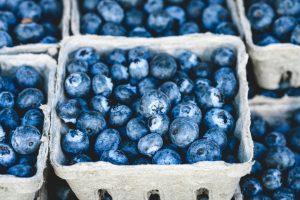Sustainable Food Choices: Consumers Drive Ethical and Eco-Friendly Options
In today’s world, consumers are becoming more conscious of the impact their choices have on the environment. The demand for sustainable and ethical options in every aspect of life is growing, and the food industry is no exception. As more people become aware of the environmental and social implications of their food choices, there has been a significant shift towards sustainable food options. This change is largely driven by consumers who are making a conscious effort to lead ethical and eco-friendly lifestyles. Let us dive into the world of sustainable food choices and how consumers are driving the demand for ethical and eco-friendly options.
The Rise of Sustainable Food Choices
In recent years, sustainable food choices have become increasingly popular among consumers. Sustainable food refers to food that is produced using methods that are environmentally, socially, and economically responsible. This includes using organic farming practices, supporting small local farmers, reducing food waste, and promoting fair labor policies. The demand for sustainable food has risen due to several factors, including growing concerns about environmental degradation, climate change, and animal welfare.
Consumers are becoming more aware of the harmful effects of conventional farming methods, such as the use of pesticides and chemicals that pollute the soil and water sources. This has led to a shift towards organic and locally grown food, which is seen as a more sustainable option. Additionally, consumers are becoming more conscious of the impact food production has on greenhouse gas emissions, leading them to opt for sustainable food that has a lower carbon footprint.
The Role of Consumer Education
Consumer education has played a vital role in the rise of sustainable food choices. As people become more informed about the environmental and social consequences of their food choices, they are more likely to make ethical and eco-friendly decisions. With the help of the internet and social media, consumers now have access to a wealth of information about sustainable food options and their benefits.
Food companies and producers have also taken on a more transparent approach and are providing consumers with information about their production practices, sourcing, and labor policies. This allows consumers to make more informed choices and support companies that align with their values and beliefs.
The Power of Consumer Demand
Consumer demand has a significant influence on the food industry. As more people choose sustainable and ethical options, companies are forced to adapt and meet this demand. This has led to the introduction of more sustainable products in the market, such as organic, fair trade, and plant-based options. Many big-name brands have also started incorporating sustainable and ethical practices into their businesses to cater to the increasing demand.
The demand for sustainable food has also led to an increase in small, local, and independent food producers who offer a more sustainable and ethical alternative to mass-produced food. These businesses rely heavily on consumer support and play a crucial role in promoting sustainable food choices.
The Impact of Consumer Choices
The power of consumer choices cannot be underestimated. By choosing sustainable and ethical options, consumers are not only making a positive impact on the environment but also shaping the future of the food industry. There are several significant ways in which consumer-driven demand for sustainable food choices is making a difference.
Reducing Environmental Impact
One of the primary benefits of sustainable food choices is their positive impact on the environment. By choosing food produced using sustainable methods, consumers are minimizing the use of harmful chemicals and pesticides. This helps to preserve the soil, reduce water pollution, and protect the ecosystem. Additionally, organic farming practices help to sequester carbon, reducing the overall greenhouse gas emissions from the food industry.
Supporting Fair Trade and Local Communities
Sustainable food choices also have a positive social impact. By supporting local and fair-trade food producers, consumers are helping to create a more equitable and fair food system. This ensures that workers are paid a fair wage, the community benefits from economic growth, and small farmers are supported.
Promoting Animal Welfare
Sustainable and ethical food choices also consider animal welfare, which is a key factor for many consumers. By choosing products produced using humane animal husbandry practices, consumers are supporting businesses that prioritize the well-being of animals, rather than exploiting them for profit.
Final Thoughts
The shift towards sustainable food choices has been driven by consumer demand for ethical and eco-friendly options. It is clear that the choices we make as consumers have a significant impact on the food industry and the environment. By choosing sustainable and ethical food, we can help drive positive change and create a more sustainable future for generations to come.
So, the next time you’re at the grocery store or dinner table, remember that your choices matter and have the power to make a difference. Let us continue to drive the demand for sustainable food choices and work towards a more environmentally and socially responsible food industry.








